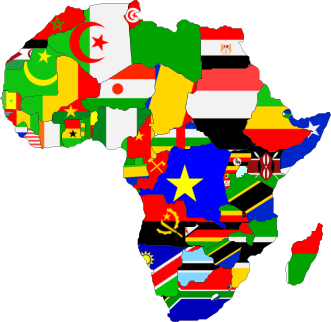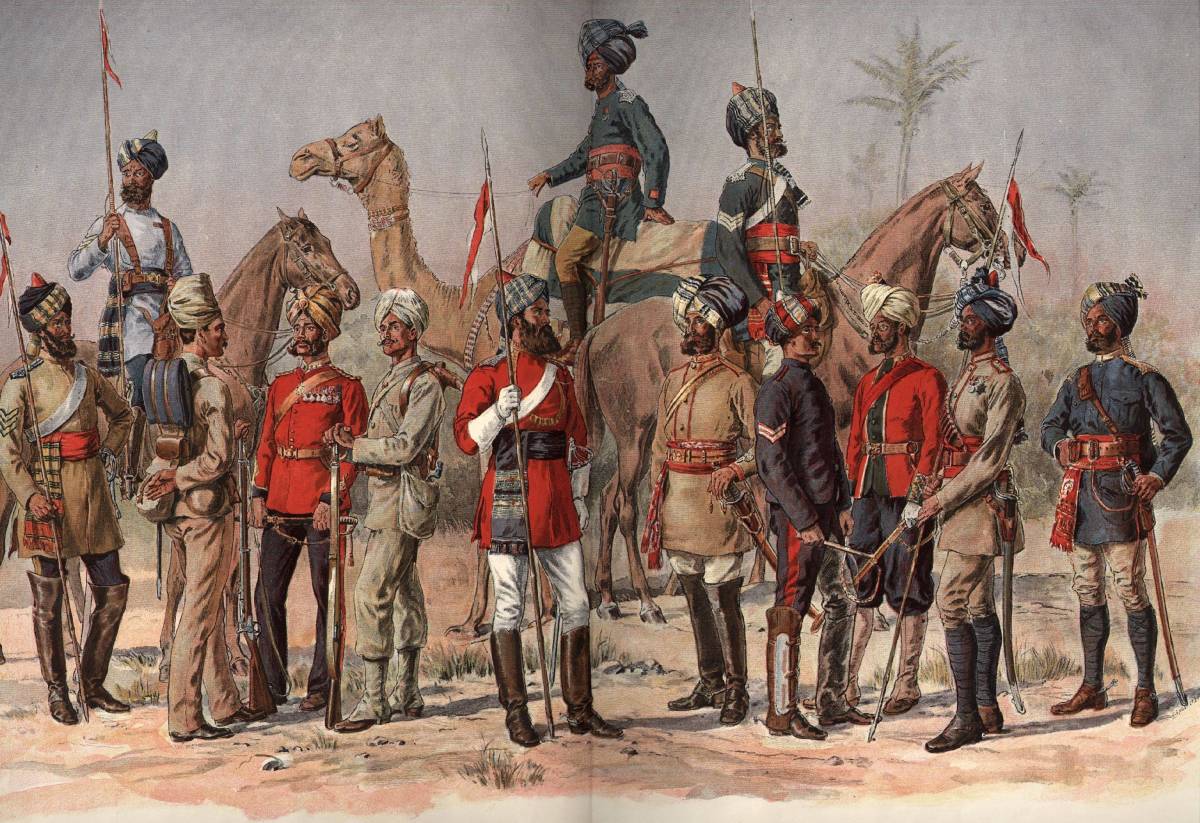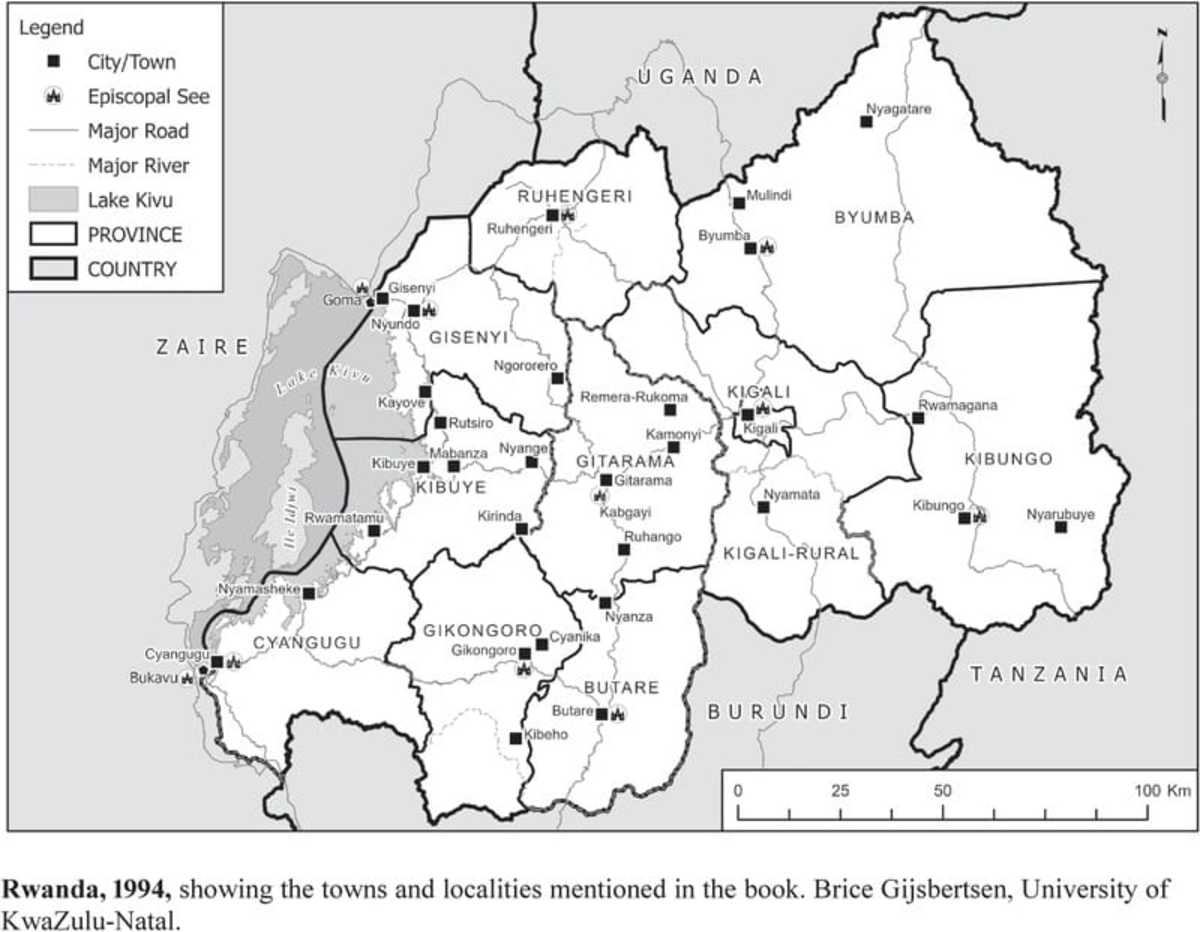The Impact of Colonialism on Current Brain Drain Trends among Healthcare Workers from Africa to Britain

The global phenomenon known as brain drain has negatively impacted the domestic healthcare industries of many former British colonies in Africa. While economic motives for migration continue to be an important reason to migrate, less clear is the link between the dual historic processes of colonialism and imperialism on current human outflows from Africa to more developed countries. This paper examines the role of colonialism and imperialism in shaping the healthcare brain drain in Africa.
Introduction
The healthcare systems of most African countries are facing a severe shortage of skilled health professionals, many of whom decide to relocate to prosperous Western countries in search of better job opportunities (Padarath, et al. 2003). While economic motives represent the main reasons these professionals move, less clear is the role of historic processes of migration which continue to affect the ability of Africa to provide its citizens with adequate healthcare. Nowhere are these historic flows of migration more evident than in former British colonies, places in which historical linkages with Britain, specifically imperialism and colonialism, continue to have an effect on African resources. Through the re-examination of secondary sources and the application of a historical perspective to current trends in healthcare outflows from Africa to Britain, this paper examines the continued role imperialism and colonialism plays in the internal affairs of many African countries, especially their healthcare systems.
The first part of the paper will focus on the underlying historical relationship between Britain and its former African colonies, looking at the specific methods used by the British to control African human resources, especially in southern Africa. Then, the paper will discuss the modern-day manifestations of British imperialism in relation to Africa’s healthcare industry; in which healthcare professionals are lured to Britain through aggressive recruitment policies and strategies adopted by British health organizations. Finally, the paper concludes with an exploration of recent attempts to decrease the harmful effects of brain drain on Africa’s healthcare system, through the examination of the work of several international organizations.
Brain Drain in Africa: The Healthcare Industry
The phenomenon called brain drain, also known as human capital flight, refers to the large scale movement of skilled, professional workers from one country to another. Compared to the volume of unskilled, forced migrants, the global movement of skilled people is still small, but its social and economic importance outweighs its numerical significance. In Africa, home to many of the world’s least developed countries, brain drain is having a devastating effect on many sectors of the African economy; including the healthcare industry.
According to Hooper (2007), healthcare systems in Africa face a variety of personnel problems, including overall lack of skilled personnel in the health sector, unequal distribution of personnel in key areas of the health industry, and the erosion of the healthcare sector knowledge base as professionals relocate to more developed countries. This critical health worker shortage leads to personnel shortages in hospital wards, health clinics in rural areas, maternity wards, and laboratories. Diseases are left untreated, the remaining staff are overworked, and overall standard of care decreases dramatically. Healthcare systems cannot function effectively without a strong foundation of skilled human capital. The exodus of healthcare workers, which include doctors, nurses, and specialists, move from the bottom rung of socio-economic development to the top, increasing the scarcity of skilled human capital. This distinction is a feature of many domestic healthcare industries in Africa (Hooper 2007).
A major destination country for migrating African health professionals is Great Britain, which as a former imperial power has had a long and parasitic relationship with many African countries. These motives will be viewed from a historical perspective, analyzing the nexus between historical British imperialistic tendencies and its continuing influence in the internal state affairs of many African countries, exemplified in the mass migration of African professionals to the mother country, Great Britain.
Britain in Africa
By the year 1922, the British Empire included about 458 million people, equivalent to one-fifth of the world’s population at the time (Niall 2002). At its height, it was the largest empire in the world, making Britain the world’s foremost global power. By the second half of the twentieth century, Britain was dismantling its empire and rebuilding itself as a successful modern nation which saw the rise of the Agricultural, and later Industrial Revolutions. As one of the five permanent members of the UN Security Council and a founding member of NATO, Britain still exerts significant influence over world politics.
By the end of the Age of Imperialism, ninety percent of Africa was divided among seven European nations. Although similar in this brutal style, each nation that participated had different motives for lands in Africa. Britain, the strongest imperial power in the world at the time, used imperialism to benefit itself. The British had practical reasons for practicing imperialism in Africa, including the protection of their route to India, improving trade, and competing with other European nations engaged in imperialism (Niall 2002). Initially, the British were uninterested in Africa, though they soon found that controlling parts of Africa was crucial to preserving their control over its most valuable outpost, India (See CIA World Factbook: India). Also in need of protection was Cape Town in South Africa, an essential stopping point on the way to India. The main reason for British imperialism was to expand trade, and to make it easier they started establishing colonies in Africa.
As a result of the Industrial Revolution, Britain produced more goods than it could consume. England had the strongest economy at the time, and to maintain it decided to expand their trade, searching for new markets which would buy their goods. According to the Encyclopedia Britannica, British colonists had a deep impact on the economic landscape of its African colonies (see Encyclopedia Britannica: Cecil Rhodes). Indeed, the famous statesman and colonist Sir Cecil Rhodes, founder of the De Beers diamond company, famously remarked “We must find new lands from which we can easily obtain raw materials and at the same time exploit the cheap slave labor that is available from the natives of the colonies. The colonies would also provide a dumping ground for the surplus goods produced in our factories” (see Overcoming Apartheid: Michigan State University). .
Demand for raw materials increased in Europe, leading Europeans to look toward Africa as a source of raw materials. The continent’s rich mineral resources were the major source of European wealth in Africa, including the British-controlled gold and diamonds in South Africa. Cash-crop plantations were eventually developed to grow peanuts, palm oil, rubber, and cocoa, and all the profits were sent back to Europe. But after the Age of Imperialism there are still instances in which African resources are being exploited, and in some cases, as we see later on, the people themselves are brought over to Europe to fulfill a critical need.
As a form of control, British officials exerted influence through existing political rulers in Africa (Kishlansky 2008). In several areas, the British asked the ruler to accept British authority over that area. Over time, the British form of government was diffused in many British colonies in the region. Control was then cemented through trade, in which the British took control of key African industries and reaped the profits from those industries, including precious metals and agricultural products. This dual system of exerting control over the local population then exploiting their resources was a main facet of British imperialism in Africa. Over time this imperialism evolved to target the Africans themselves, who provide a service in filling crucial positions within the British healthcare system.
Brain drain in the domestic healthcare systems of many African countries are influenced by a variety of factors, including push and pull factors. Push factors include high unemployment, low wages, and political instability, etch, making it difficult to launch and sustain a professional career in healthcare in Africa (see Padarath et al. 2003). Low wages are often cited as one of the most important reasons health professionals choose to migrate. Pull factors, however, are those factors employed by Western countries to try to lure African professionals to Europe, targeting the specific professional gap that needs to be filled in Europe. As Cooper (2008) notes, these factors include better compensation, better services, more adequate housing, political stability, and better overall working conditions (Cooper 2008).
Pull Factors: United Kingdom’s National Health Service
Pull factors are an important reason health professional choose to migrate from Africa to Britain. Britain facilitates the migration of nurses through the implementation of several mechanisms, including extended work permits and the lack of direct examinations in order for nurses to start practicing in the UK quicker.
According to Linda Aiken, et al (2004), the British National Health Service (NHS) is going through an unparalleled period of funding increases, which has led to the growth of the overall nurse workforce. The United Kingdom’s Registered Nurse-To-Population Ratio, the United Kingdom is 850 for every 100,000 citizens. In comparison, Zimbabwe’s Registered Nurse-To-Population Ratio of 129, while Nigeria’s is 66.While more nurses are being trained in the United Kingdom, the focus for THE NHS has been on the active recruitment of foreign-born nurses to minimize costs. In 2002, 16,155 foreign-born nurses joined the UK register of nurses compared to 14,538 UK-trained nurses. Between 1999 and 2002, the number of foreign-trained nurses based in the UK doubled to 42,000 (Aiken et al 2004).
As a result, many sectors of the British healthcare system have grown dependent on these foreign nurses. These sectors sponsor extended work permits to allow these nurses easier access into the healthcare system. This has changed the demographic of domestic UK nurses; 25% of nurses in London are born overseas, featuring a rate of 60% foreign-born nurses in some private health organizations (Aiken et al 2004) These nurses come not from the European Union but from developing countries such as India, South Africa, Zimbabwe, and a number of other countries. Perhaps not surprisingly, the aforementioned countries were former British colonies, most of which are countries experiencing critical shortages in domestic healthcare professionals (Aiken et al 2004).
The United Kingdom has come under controversy during the past decade over nurse migration, especially nurses emigrating from sub-Saharan African countries. In 1999, the UK Department of Health published an ethics code banning the direct recruitment of African nurses by the National Health Service ( see Martineau and Willetts 2004). However, this code did not influence recruitment practices in private sector health organizations, who continued to recruit African nurses in large numbers, many of whom eventually found jobs with Britain’s public health service. These private health organizations often provide the nurse with assistance in obtaining visas, as well as the provision of relocation and housing expenses (Ogilvie 2007). The number of African nurses practicing in the UK has increased steadily. Facilitating the migration of nurses from Africa to Britain is the lack of examination required to practice; instead, the Nursing and Midwifery Council assess their overall credentials and evidence of English proficiency. Linda Aiken, et al (2004) notes that the absence of an exam, therefore, might make it easier for these migrating nurses to relocate to Britain as opposed to the United States, which has stricter entry requirements (Aiken et al 2004).
Another pull factor that makes migration easier is the process of nurse registration. The process of nurse registration in the UK is centralized nationally, making it easier to track licensure of foreign-born nurses (Ogilvie et al. 2007). These easier entry points into the healthcare system have led to an increased rate of migration amongst African health professionals in former British colonies. A recent study suggests that approximately 60% of health professionals in Ghana, South Africa and Zimbabwe plan to migrate. (Ogilvie et al. 2007).
Imperialism, Colonialism, and Brain Drain
While current pull factors employed by British health organizations is a main reason for migration, another important factor is the impact of colonial and imperial processes on current brain drain trends. During colonial times, most large population movements were linked to the economic policies of colonial governments (see Shinn 2008). Unskilled laborers migrated to the plantations and agricultural projects located in coastal countries. Large numbers of northern workers migrated to work in the gold and diamond mines in South Africa. White farmers displaced Africans from their lands in Kenya, South Africa, and Zimbabwe (Shinn 2008). Apart from economics, the establishment of educational institutions in colonies has impacted current trends in healthcare professional migration.
According to Peter Arnold (2011), during the 19th century Britain established schools and universities in the African territories they colonized (Arnold 2011). Over time, medical schools were established, training indigenous students in the same high standards as back in Britain. These medical schools’ research, equipment, and lecturers were British. However, with the end of colonial rule came the end on relying on the colonizers for medical education, equipment, or research funds. As independence movements developed, the health of the local population became less important as new African rulers, many of them corrupt, focused on solidifying their authority amid the power vacuum left by the colonizers. As African rulers sought to change the political and social landscapes of their countries, the highly-trained nurses and doctors found they could no longer practice medicine with the same high standards and ethics imbued by their European teachers (Arnold 2011). Regressive health policies implemented by the new rulers led to a deficiency in funding, leading to a deficiency of funds for medical workers’ salaries, as well as equipment, facilities, and research. Faced with these problems, doctors and nurses began to consider emigrating to Western countries, which was experiencing increased demand for quality healthcare providers.
The Case of South Africa: Apartheid’s effect on medical student migration
As Nduru (2006) points out, one of the major donor countries supplying healthcare professionals to more developed countries is South Africa. South Africa is currently Africa’s largest economy ( Bryson 2012) however, it is estimated 37% of the country’s doctors and 7% of nurses have left for higher wages in the Britain, the United States, Australia, and other high income countries (Nduru 2006).
A look at South Africa’s historical linkages with Britain can shed light on how colonial policies have contributed to the current brain drain trends in the healthcare industry. British colonizers arrived in South Africa in the 17th century. Both Britain and the Netherlands established colonies in the region. During the 1900’s, the discovery of diamonds led the British to invade the Dutch-controlled Orange Free State and Transvaal regions, sparking the Boer War (see History of Apartheid: Stanford). After independence, the Afrikaner National Party established apartheid as a means to keep their economic and social control over the newly formed South African nation. Apartheid, which in Afrikaans means “separation”, was a system of legally-sanctioned racial segregation that featured a small, superior white class which ruled over the black majority (Arnold 2011).
People were classified as ‘white’, ‘black’, or ‘mixed’. Several ethnic sub-categorizations were also instituted, with further stratification found within each main category. These categories determined a person’s medical education, including where they went to be educated. The friction caused by this education segregation led many South African medical graduates to emigrate. According to Arnold, this pattern can be traced starting in 1948, when government elections yielded members with pro-Nazi sympathies (Arnold 2011). Recent black medical graduates began to be even more wary of the consequences of staying in South Africa, especially when the black townships of Langa and Sharpeville experienced racially-motivated shootings in 1960 (Arnold 2011).
Even after the end of apartheid, there are still a large number of health professionals migrating from South Africa to Britain and beyond. However, there is one major distinction in the demographics of these people: they are of European origin, while in other countries it is indigenous people leaving. Arnold (2011) stresses the fact that some of these health professionals, classified as ‘white’ under apartheid, fled after it became clear the days of white rule were over. As a result, many of the professionals emigrating abroad were white South Africans, who during the past 20 years decided to leave as South Africa ushered in a new era of political freedom (Arnold 2011).
Decreasing Brain Drain: The Work of International Organizations
There are ongoing efforts to reduce brain drain from Africa, mainly through bilateral development projects organized by international, regional, and state organizations, with significant input from governments and health policymakers.
At the global level, the International Organization for Migration (IOM) has developed an institutional program called ‘Migration for Development in Africa.” This project, called MIDA for short, overseas country-specific development projects which seek to reduce the effects of brain drain. This is a capacity-building program which circulates and facilitates competencies between the diaspora and their country of origin. Needs assessments are conducted to target the specific issues that need to be critically addressed. Then, relevant authorities and the governments of the country of origin participate in the implementation of development projects (Reyes and Treeck, 2009).
An example of this is the IOM’s Regional Office in Helsinki, Finland, where the Somali diaspora in Finland contributes to the development of Somalia (Reyes and Treeck, 2009). This resulted in the creation of the Migration for Development in Africa project, which involves health professionals with a Somali background returning to Somalia on a temporary basis to help train local medical staff and help alleviate the pressures on the country’s health sector (Reyes and Treeck, 2009). This project was developed in response to the concerns of Somali government officials and healthcare authorities, who approached the IOM to discuss the possibility of the temporary return of Somali health professionals residing in Finland. The project assesses the human resource capabilities of the Somalis health sector, identifying the critical skills possessed by the diaspora and networking with the targeted groups, and facilitating the transfer of skills from the diaspora to Somali health professionals (Reyes and Treeck, 2009). In total, the MIDA project increased the capacities of 20 Somali health institutions, training a total of 500 doctors, nurses, and laboratory technicians in valuable skills they can utilize in the future. The projects volunteers facilitated the treatment of over 1000 patients. These volunteer experts also enhanced the network-building capacities of the health institutions, creating networks among these institutions and the diaspora in Finland to provide the framework for further enhancement opportunities. The project accomplished it goal amid concerns for security, lack of medical supplies, and the conflicting work schedules of some of the health professionals, some of which had contracts with Finnish health institution (Reyes and Treeck, 2009).
At the regional level, the South African Network of Skills Abroad (SANSA) seeks to address and mitigate the effects of brain drain on South Africa. Like the MIDA project, SANSA seeks to connect expatriates residing in other countries with their South African counterparts; so that they can transfer their skills and knowledge to improve the quality of the health system (see Brown, 2003). Funding is provided by governments and international organizations like the IOM (Padarath et al. 2003). On the SANSA website, there is a search engine which allows workers to search the database for the specific skills they need. Messages can then be sent and received between interested parties. It can be searched inside and outside South Africa for individuals wanting to contribute their skills. A few months after the establishment of the SANSA network, its two coordinators, Dr. Jean Baptiste Meyer and Professor Dave Kaplan, were invited present the work of SANSA to parliament and influential ministers within the South African government (Brown, 2003).
The MIDA and SANSA projects are but two of the international organizations working to decrease the harmful effects of brain drain on source countries. According to Padarath, et al. (2003), other agencies such as the UN, USAID, and the South African Medical Association are all working to enhance the skillset of African doctors in the wake of the brain drain which has severely impacted the ability of African nations to provide its citizens with quality healthcare ( Padarath et al. 2003; Brown 2003). These organizations work closely with government entities to coordinate policies and strategies on the management of health systems.
Conclusion
Through the re-examination of secondary sources regarding brain drain, colonialism, imperialism, and the critical health shortages seen in many of the domestic health systems of Africa, a strong correlation between a place’s colonial and imperialistic past and current brain drain trends can be seen. The case of South Africa serves as an example of how British colonial rule, resulting in apartheid, influences current patterns of migration among African health professionals today. Brain drain needs to be seen not only from an economic perspective, but from a historical perspective as well. By incorporating a multi-faceted approach to the issue of brain drain, policy analysts and stakeholders can more readily understand the root causes of such a salient issue; causes that may not be obvious without further research into the historical linkages which still play a role in medical brain drain today. By examining the underlying historical connections that contribute to Africa’s brain drain, a more holistic model for problem-solving can be incorporated into current methods to deal with one of Africa’s most pressing problems.
References
Aiken, Linda et al. Trends In International Nurse Migration, Health Affairs, 23, no.3 (2004):69-77
Arnold, Peter. Why the ex-colonial medical brain drain? J R Soc Med 2011: 104: 351–354
CIA World Factbook: India. Accesses June 28, 2012.
Ferguson, Niall. Empire: The Rise and Demise of the British World Order and the Lessons for Global Power. New York: Penguin Books, 2002.
Encyclopedia Britannica, Sir Cecil Rhodes.
Hooper, C R. Global medical ethics: Adding insult to injury: the healthcare brain drain, Journal of Medical Ethics, 2008, 684-687.
Kishlansky, Mark. Meridians Sources in World History: History of Africa Documents and Sources. Boston: Pearson, 2008.
Martineau T. and Willetts, A. Ethical International Recruitment of Health Professionals: Will Codes of Practice Protect Developing Country Health Systems?, Liverpool School of Tropical Medicine, (2004).
Ogilvie, L., et al (2007), The exodus of health professionals from sub-Saharan Africa: balancing human rights and societal needs in the twenty- first century. Nursing Inquiry, 14: 114–124.
Padarath, Ashnie, et al. 2003. Health Personnel in Southern Africa: Confronting maldistribution and brain drain. Production 3, no. 1: 1-41.
Shinn, David, African Migration and the Brain Drain, Institute for African Studies and Slovenia Global Action, 2008.
Michigan University, "Overcoming Apartheid." Accessed June 27, 2012.








